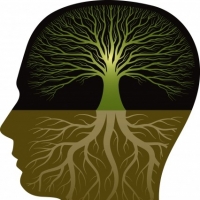Sleep In A Dark Room
In my study of weight loss information I discovered various sources describing how important it is to sleep in the dark, not only for weight loss but for other health issues. Sleeping in the dark didn’t seem like a big deal to me until I began to understand what the body is trying to accomplish during sleep.
Many people believe they need to sleep to give the body and brain a rest. On the contrary, the body and brain are at work while you sleep to rejuvenate damaged cells, revitalizing tissues and organs for the next day. To accomplish this process, the body works best in the dark. So, why is this, especially when you consider that many young people today grew up with a night light or even a lamp on in their bedroom?
Our body is a wonderfully designed system whose goal is to repair and heal it whenever possible. The body is very structured in how it works. You have probably heard of the “biological clock” which is a function of a very small part of the brain along with various nerve systems. Think of it as a time clock that controls your time awake and time asleep. Over a period of time your time clock adapts to a routine schedule and will try to protect this schedule. Even if you travel a long distance by air your time clock will try to keep the old schedule. For some this is called jet-lag. One of the things that can cause a response in the body is light, regardless of the time of day or night.
There are special hormones working in our body as we sleep. Two hormones, leptin and ghrelin, serve special purposes but seem to be in conflict with each other. High levels of leptin tell your body it is full and high levels of ghrelin increase your appetite. Getting a good night’s sleep is crucial for leptin to succeed.
Two other conflicting hormones are melatonin and cortizol. Melatonin is commonly referred to as the sleep hormone or “the hormone of darkness”. There are many health benefits of melatonin. For our discussion on sleep all we need to remember is melatonin is a good hormone. So where does cortizol come in?
As mentioned earlier, our body is very sensitive to light. Actually, so much so that when light shines on any part of our skin our body is made to believe it is morning and time to get up. Cortizol enters the scene from this response and starts the process to give us energy to get up and be active. Cortizol is in, melatonin is out. Melatonin is produced only in the absence of light. One of the functions of melatonin is to produce serotonin which is a chemical that supplies a sense of calm and well-being.
Studies also show a correlation between sleeping in a lighted environment and weight gain. Consider the fact that if you get up in the middle of the night and turn the light on, cortizol rushes in, melatonin decreases and the leptin/ghrelin cycle is interrupted. The same thing happens, to a lesser degree, if there is any light in your bedroom, whether it is a night-light, street light from outside or even a clock-radio dial.
Bottom line; put a red bulb in the night-light, close the drapes and sleep in the dark. Your body will help you have a good night’s sleep. You need to help your body by getting adequate sleep time in a dark room. Try it, you will notice a difference.
Find more useful information on Dieting and Bedtime here.
-
The Diet Solution Program Ebook
The Diet Solution Program Ebook The Diet Solution Program puts a serou
-
Using Garcinia Cambogia To Lose Weight
One of the newest and hottest weight loss supplements available today
-
A Low Fat Diet Is Better For You
It has become a fact that much of the population today is considered o
-
Diet Plans For Picky Eaters
The history of diet plan dated from the moment that the first monkey e
-
Accepted P90X amalgamation accord
The annual does not ends here! You is council to p90x cheap be offe
-
Use This Complete Weight Loss Program To Keep Your Fat Off Forever By Using A Scientifically Proven & Effective Plan! - Ever Loss
CLICK HERE NOW to Download The EverLoss System and Start Losing 23 LBS
- DON'T MISS
- Fat Burning Furnace Criticism
- Want To Lose Weight? The Age Old Truth About Losing Weight
- Remove Stubborn Belly Fat With This Super Fast Body Fat Diet! - Fat Burning Program
- Lose Weight and Feel Great
- A Proper Fat Burn Diet is the Key to Weight Reduction
- Conquer Those Carbohydrate Cravings
- Very Powerful List of Fat Burning Foods!
- How Bee Pollen Can Help You to Lose Weight
- Buy Sibutramine drug: Precisely what is the way to handle cravings for foods
- Lose Weight with the 1200 Calorie Diet




